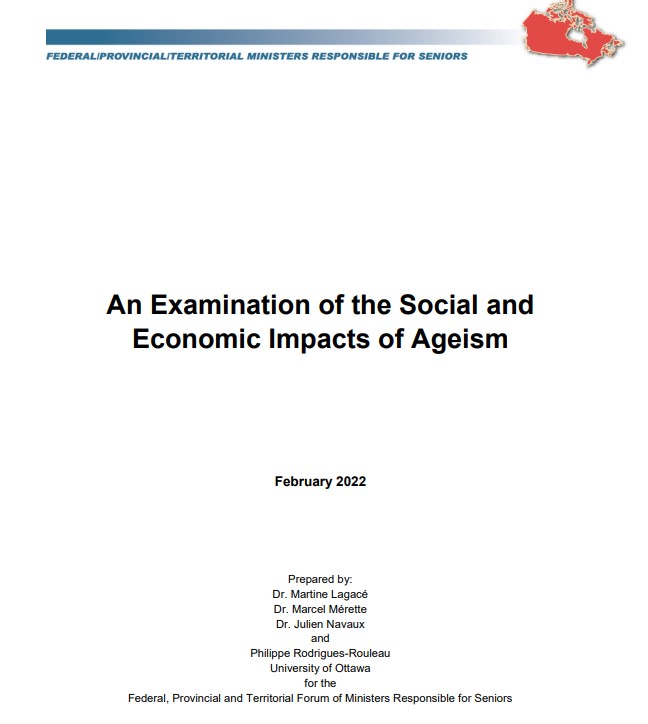 "Ageism is “the stereotyping, prejudice and discrimination against people on the basis of their age” (World Health Organization [WHO], 2019). As the number of older adults in Canada continues to grow, it is important to address ageism, document its negative effects, educate Canadians about these effects and find ways to counteract it. Promising initiatives are underway, including campaigns from the World Health Organization (WHO) and the European Union (EU). There is a need for further action, especially in Canada, as ageism remains the only type of discrimination perceived as acceptable and socially tolerated (Ayalon & Tesch-Römer, 2018).
"Ageism is “the stereotyping, prejudice and discrimination against people on the basis of their age” (World Health Organization [WHO], 2019). As the number of older adults in Canada continues to grow, it is important to address ageism, document its negative effects, educate Canadians about these effects and find ways to counteract it. Promising initiatives are underway, including campaigns from the World Health Organization (WHO) and the European Union (EU). There is a need for further action, especially in Canada, as ageism remains the only type of discrimination perceived as acceptable and socially tolerated (Ayalon & Tesch-Römer, 2018).
This report examines social and economic impacts of ageism through a review of literature to better understand:
- the impacts of ageism related to employment, health and health care, social inclusion, safety and security, media and social media
- initiatives to counteract age-based discrimination against older adults
Sources include academic and non-academic documents (produced by governments and organizations that represent or support older adults) published between 2014 and 2019, available in French or English. Of 346 relevant documents reviewed, 258 are discussed (136 relating to impacts and 122 relating to initiatives). Most documents relating to the impacts of ageism stem from scholarly publications, and the psychosocial impacts of ageism are far more documented than economic impacts. Most studies on the impacts of ageism relate to health, health care, and employment. There has been a marked increase in the number of large empirical studies in the last 5 years."
Source: Federal/Provincial/Territorial Ministers Responsible for Seniors Forum

















